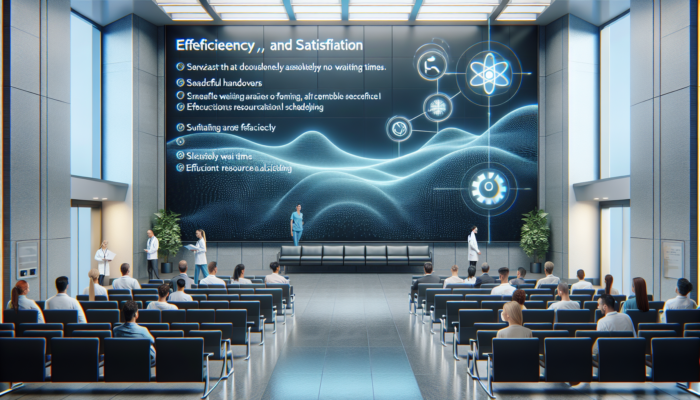The integration of Customer Relationship Management (CRM) systems within the healthcare industry has fundamentally transformed the approach to patient management. By leveraging technology and data-driven processes, healthcare providers can optimize operations, enhance patient experiences, and significantly boost overall efficiency. This article explores the critical importance of CRM implementation in healthcare, shedding light on its myriad benefits and outlining best practices that can be adopted for successful integration.
Understanding the Vital Role of CRM Implementation in Healthcare
As we navigate an increasingly fast-paced and digitized environment, patients have come to expect a seamless and efficient experience when engaging with healthcare providers. CRM systems are essential in fulfilling these expectations, as they provide a comprehensive platform for managing patient relationships. Here are several compelling reasons why the implementation of CRM systems is essential within the healthcare sector:
1. Establishing Centralized Management of Patient Data

Implementing a CRM system allows healthcare providers to aggregate and manage patient data in a centralized, secure environment. This consolidation eliminates the need for multiple, disjointed systems and significantly reduces the risk of data errors. With easy access to comprehensive patient information—such as medical history, allergies, and treatment plans—healthcare professionals can deliver tailored care and make informed decisions swiftly.
- Centralizing patient data allows healthcare providers to streamline their processes, avoiding the complications of juggling multiple systems while ensuring all relevant information is readily accessible.
- The centralized structure of CRM systems minimizes the likelihood of data errors and inconsistencies that might occur from utilizing disparate systems.
- A holistic view of patient data enables healthcare professionals to deliver personalized care, integrating the patient’s medical history, specific allergies, and tailored treatment plans into their decision-making processes.
2. Boosting Patient Engagement and Communication
CRM systems empower healthcare providers to engage in effective communication with patients throughout their healthcare journey. From automated appointment reminders and follow-up notifications to personalized health tips and the collection of patient feedback, CRM tools facilitate timely and targeted communication. This not only enhances patient engagement but also strengthens the relationship between patients and providers, ultimately leading to improved health outcomes.
- By automating appointment reminders and follow-up notifications, CRM systems help reduce the occurrence of missed appointments, thereby improving patient adherence to treatment plans.
- Healthcare providers can utilize CRM systems to send personalized health tips and educational resources, encouraging patients to take an active role in their health management.
- CRM systems include features for collecting feedback, allowing patients to share their experiences and enabling providers to continually refine their services and address any concerns.
3. Enhancing Care Coordination and Collaboration Among Providers
Within a healthcare setting, a multitude of professionals and departments contribute to patient care. The implementation of a CRM system streamlines care coordination by facilitating seamless communication and collaboration among all stakeholders involved. Doctors, nurses, specialists, and administrative staff can access real-time patient data, share notes, and monitor progress, fostering teamwork and ensuring an uninterrupted continuum of care.
- CRM systems promote real-time communication among healthcare professionals, ensuring that everyone involved in a patient’s care has access to the same information.
- By utilizing a centralized CRM system for sharing notes and tracking patient progress, healthcare providers can ensure smooth transitions between departments, effectively avoiding any gaps in care.
- Access to real-time patient data empowers healthcare professionals to make informed decisions, ultimately leading to the delivery of optimal care.
4. Streamlining Appointment Scheduling and Resource Allocation

Implementing a CRM system within healthcare environments fosters efficient appointment scheduling and effective resource allocation. With automated appointment reminders and intuitive scheduling tools, healthcare providers can optimize their resources, reduce no-show rates, and minimize patient waiting times. This improvement directly correlates with enhanced patient satisfaction, increased productivity, and optimal utilization of healthcare facilities.
- CRM systems provide automated appointment reminders, significantly reducing missed appointments and last-minute cancellations.
- Intuitive scheduling tools present in CRM systems enable healthcare providers to allocate resources efficiently, ensuring patients receive timely care.
- By reducing waiting times and optimizing how resources are allocated, healthcare providers can enhance patient satisfaction while maximizing the use of their facilities.
5. Empowering Data-Driven Decision Making
CRM systems are designed to collect and analyze extensive amounts of patient data, providing invaluable insights for healthcare providers. By harnessing these analytics, healthcare organizations can identify emerging trends, anticipate patient needs, and make informed, data-driven decisions. This approach enhances operational efficiency, improves resource allocation, and supports strategic planning, ultimately leading to superior patient outcomes and substantial cost savings.
- CRM systems are equipped with robust analytics capabilities that enable healthcare organizations to discern trends and patterns within patient data.
- By analyzing patient data effectively, healthcare providers can forecast patient needs and allocate resources accordingly, resulting in more efficient and cost-effective care.
- Data-driven decision-making facilitated by CRM analytics allows healthcare organizations to continuously elevate their operations and improve patient outcomes.
Essential Best Practices for Successful CRM Implementation in Healthcare
For a CRM implementation in healthcare to be successful, adhering to best practices is crucial. Here are some vital considerations:
1. Establish Clear Objectives and Define the Scope of Implementation

Prior to initiating a CRM implementation, healthcare organizations must establish clear objectives and define the scope of the project. Identifying specific pain points and challenges that the CRM system is intended to address is essential. Whether the focus is on improving patient satisfaction, streamlining appointment scheduling, or enhancing communication, setting well-defined goals aligns the implementation process with anticipated outcomes.
- By clearly defining objectives and scope, healthcare organizations can prioritize their needs and concentrate on the most critical areas requiring improvement.
- Identifying pain points allows healthcare providers to tailor the CRM implementation to effectively address specific issues, maximizing its impact.
- Well-defined goals create a roadmap for the implementation process, ensuring that all stakeholders are aligned regarding the expected outcomes.
2. Actively Engage Stakeholders and Secure Their Buy-In
Involving key stakeholders from various departments is paramount for the successful adoption and implementation of a CRM system. Engaging clinicians, administrative staff, IT personnel, and other relevant parties is essential to gain their buy-in, address concerns, and ensure seamless integration with existing systems and workflows. This collaborative approach fosters a sense of ownership and significantly increases the likelihood of a smooth transition.
- Engaging stakeholders from diverse departments ensures that their needs and concerns are addressed during the CRM implementation process.
- By securing buy-in from key stakeholders, healthcare organizations can cultivate support and enthusiasm for the CRM system, enhancing the chances of successful adoption.
- Involving stakeholders early in the process facilitates better integration with existing systems and workflows, minimizing potential disruptions during implementation.
3. Select a Scalable and User-Friendly CRM Platform
Choosing the right CRM platform is essential for achieving long-term success. Look for a scalable solution that can adapt to the evolving needs of your healthcare organization. Additionally, prioritize a user-friendly interface to promote easy adoption and minimize disruptions to daily operations. When evaluating CRM vendors, consider factors such as customization options, integration capabilities, data security, and available technical support.
- A scalable CRM platform can grow alongside the organization, adapting to changing requirements and ensuring a long-term return on investment.
- User-friendliness is critical for encouraging widespread adoption among healthcare professionals and reducing the learning curve associated with the new system.
- Assessing CRM vendors based on customization options, integration capabilities, data security measures, and technical support ensures that the selected platform meets the specific needs of the organization.
4. Prioritize Data Privacy and Security
Healthcare organizations handle sensitive patient information, making data privacy and security of utmost importance. When implementing a CRM system, it is imperative to adhere to industry standards and regulations, such as the Health Insurance Portability and Accountability Act (HIPAA) in the United States. Implementing robust security measures, including encryption, access controls, and regular data backups, is essential to protect patient data from unauthorized access or breaches.
- Compliance with industry standards and regulations, like HIPAA, is crucial for healthcare organizations to safeguard patient data and maintain trust.
- Robust security measures, including encryption and access controls, are necessary to ensure that patient information is secure from unauthorized access.
- Regular data backups are critical for helping healthcare organizations recover from potential data loss or breaches, thereby minimizing the impact on patient care.
5. Deliver Comprehensive Training and Ongoing Support
Effective training and ongoing support are vital for maximizing the benefits of CRM implementation. It is essential to ensure that all end-users, from healthcare professionals to administrative staff, receive thorough training on how to effectively utilize the CRM system. Providing documentation, manuals, and user guides can facilitate self-learning and troubleshooting. Furthermore, establishing a dedicated support team to address queries, resolve technical issues, and guide users throughout the implementation process is crucial.
- Comprehensive training ensures that all end-users are proficient in using the CRM system, unlocking its full potential and benefits.
- Providing documentation and user guides allows users to reference important information and troubleshoot common issues independently.
- A dedicated support team guarantees that users have access to timely assistance and guidance, thereby reducing frustration and enhancing user satisfaction.
In summary, the implementation of CRM systems in healthcare is fundamentally transforming the management of patient relationships by streamlining processes, enhancing communication, and improving patient experiences. By centralizing patient data, facilitating engagement, and enabling data-driven decision-making, CRM systems empower healthcare organizations to deliver efficient and personalized care. By adhering to best practices and actively involving stakeholders, healthcare providers can successfully implement a CRM system that revolutionizes patient management and fosters positive health outcomes.
Please note that the complete article is shown in markdown format below:
“`markdown
Originally posted 2023-03-09 16:32:13.